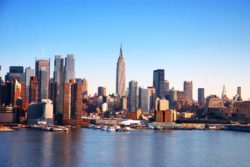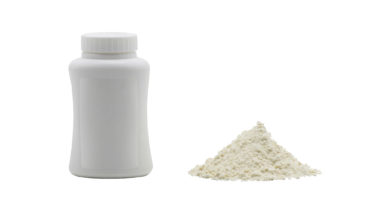 Victims who were diagnosed with cancer due to exposure to toxins at the site of the September 11 terrorist attacks may be eligible to apply for compensation through the September 11th Victims Compensation Fund.
Victims who were diagnosed with cancer due to exposure to toxins at the site of the September 11 terrorist attacks may be eligible to apply for compensation through the September 11th Victims Compensation Fund.
However, the funding for this compensation program is due to expire in December 2020, leaving many victims unsure of how they will afford future medical expenses and costs associated with their conditions and injuries.
Time is Running Out for Victims
According to a recent statement released by compensation fund administrator Rupa Bhattacharyya on Feb. 15, 2019, the September 11th Victims Compensation Fund is quickly running out of money and will be unable to compensate thousands of victims for the full value of their claims.
Until the expiration of the fund in December 2020, these claims will be paid out at a fraction of their previous value depending on when they were submitted.
The first September 11th Victims Compensation Fund was originally active from 2001 until 2004. In 2011, President Obama reinstated the fund for a period of five years, and then reauthorized the bill for another five years in 2016. While legislation has been proposed to renew the fund, its passage isn’t certain.
Since the initiation of the compensation fund, approximately $5 billion in awards have been distributed to qualified claimants. In 2018 alone, the fund issued compensation settlements to 8,619 claimants. These monetary determinations amounted to near $1.5 billion in awards for victims. However, the fund also received a record high number of new claims in the same year.
According to a message posted in February 2019 on the VCF website, between Dec. 31, 2016 and Dec. 31, 2018, nearly 20,000 compensation claims were filed by victims who had been diagnosed with September 11 related cancers. In these two years, more victims filed claims than the total amount filed in the first five years the fund was active.
The high number of recent claims is due to several factors, including the increased rates of diagnoses of severe illnesses and conditions in victims who were exposed to toxins from the September 11 attacks. Many of these conditions include slow-growing cancers that may take years or decades to develop and show symptoms.
The slow nature of these conditions means that new victims of the September 11 attacks may continue to diagnosed for years to come.
The fund has also increased its outreach efforts in an attempt to reach victims who may be potential claimants. By reaching out to the World Trade Center Health Program, the September 11 victims and advocacy community, and lawyers who represent victims of the attacks, the fund has been actively seeking out new potential claimants.
The increase in claims may also be due in part to release of the Victims Compensation Fund’s Notice of Inquiry from October 2018. The Notice of Inquiry informed potential victims that under the current rates of fund disbursal, it was unlikely that the $7.375 billion still in the fund at that time would be sufficient to compensate every pending and anticipated future claim under the established policies for calculation of award amounts.
Approximately $2.375 billion is left in the fund to compensate victim claims. As this amount is anticipated to be insufficient to fulfill the high number of claims, fund administrator Rupa Bhattacharyya has stated that the policies and procedures regarding compensatory amounts have been modified.
These changes have been made in an effort to distribute awards to as many claimants as possible, albeit in smaller amounts than the fund has historically awarded. Due to the lack of available funding, payouts to cancer victims will be cut by as much as 70 percent.
In a statement released by Bhattacharyya regarding the changes, she said, “I am painfully aware of the inequity of the situation. I also deeply regret that I could not honor my intention to spare any claim submitted prior to this announcement from any reductions made due to a determination of funding insufficiency.”
Under the new policies, claims that were submitted prior to Feb. 1, 2019 will be paid out at 50 percent of their original value. Claims submitted after that date will be paid out at 30 percent of their prior value.
After the fund expires in December 2020, victims will no longer be able to apply for financial awards. However, some members of Congress are hoping to allot more money to the fund and renew it before the expiration date.
According to Newsweek, Senators Kirsten Gillibrand and Chuck Schumer are leading the charge to rally for Congress to permanently finance the September 11th victims compensation fund, along with several other senators and congresspeople.
In regards to the imminently expiring fund, Kirsten Gillibrand has stated “Cancer rates in the 9/11 first responder community are rising higher than ever, which means the VCF is more important than ever. We cannot tell them, ‘Sorry, we don’t have the funds for you.’ We cannot turn our backs on these heroes – not now, not ever.”
September 11 Cancers
In addition to the 2,753 people who were directly killed due to the World Trade Center plane crashes on Sept. 11, 2001, thousands of other victims have died due to illnesses from the airborne toxins that were released in the terrorist attacks. 24,000 gallons of jet fuel was released by the attacks, igniting 100,000 tons of organic debris, and leading to huge clouds of soot and dust.
Fragmented building materials and explosions also released toxic fumes into the air. This toxic dust polluted the air for blocks around the site of the crashes.
The dangerous materials and toxins released into the air at the time of the September 11 attacks include aluminum, asbestos, carbon monoxide, hydrogen sulfide, crystalline silica glass, and jet fuel. Over a million people may have been exposed to these hazardous particles, and more than 10,000 have been diagnosed with related cancers.
It is estimated that more than 2,000 victims have already died due to complications from cancers and other conditions caused by the toxic dust from the attacks.
According to several studies regarding the link between Ground Zero exposure and cancer, first responders and other rescue workers who were on site immediately following the attacks have much higher rates of skin melanoma, bladder cancer and thyroid cancer than the general population. Non-emergency responders who were in the area in the year following the attacks have a higher risk of breast cancer, leukemia, multiple myeloma and non-Hodgkin’s lymphoma.
More than 70 types of cancer may qualify victims to apply for compensation through the fund. In addition to compensation for medical expenses, loss of income, and pain and suffering, the fund may also award damages to victims’ families for wrongful death, funeral expenses, or survival compensation. Qualifying cancers include but are not limited to:
- Melanoma
- Thyroid cancer
- Non-Hodgkin’s lymphoma
- Multiple myeloma
- Leukemia
- Lung cancer
- Bladder cancer
- Prostate cancer
- Breast cancer
- Ovarian cancer
- Non-melanoma skin cancer
- Colon cancer
- Kidney cancer
- Mesothelioma
- Nasal or mouth cancer
- Stomach cancer
- Bone cancer
- Liver cancer
- Brain cancer
- Esophageal cancer
- Sarcoma
In addition to the heightened risk of cancer, victims who were exposed to toxic dust and fumes released in the attacks may also be more likely to develop respiratory problems due to inhalation of these toxins.
These possible issues include lung problems, sinus issues, asthma, acute rhinitis, sinusitis, and chronic throat problems. Some victims may also be more likely to experience digestive disorders, musculoskeletal disorders, and mental health conditions, including PTSD, anxiety and depression.
Who May Be Eligible for Compensation Through the Victims Compensation Fund?
Anyone who was in the vicinity of Ground Zero, the site of the September 11 terrorist attacks, between Sep.11, 2001 and May 31, 2002 may have been exposed to dangerous airborne toxins. Victims who were diagnosed with one of more than 70 qualifying types of cancer may be able to receive compensation for their pain and suffering, as well as medical expenses.
In order to qualify, victims must have been diagnosed with cancer at least four years after their exposure to the toxins. For victims with blood or bone cancer, this time limitation is reduced to one year after exposure. Many types of people who were in the area after the attacks may qualify to apply for compensation through the victims fund, including but not limited to:
- 9/11 volunteers
- Firefighters, police officers, and EMTs
- 9/11 first responders
- Out of state responders
- Sanitation workers and cleaners
- Construction workers
- City workers
- Utility workers
- Employees who worked at a business below Canal Street
- Residents who lived below Canal Street
- Students who attended school below Canal Street
Victims who apply through the September 11th Victims Compensation Fund may be awarded compensation for past and future medical expenses, loss of income, loss of earning capacity, or pain and suffering. Some victims may also be awarded free lifelong medical care.
Settlement amounts have previously ranged from thousands of dollars to millions of dollars per victim. Under the new policies, these amounts may be smaller, but victims or their families may still be eligible to receive substantial monetary awards.
If you or a loved one was diagnosed with cancer after exposure to airborne toxins from the September 11 attacks, you may be able to apply for compensation through the September 11th Victims Compensation Fund. Victims are encouraged to apply as soon as possible, as the fund is set to permanently expire in December 2020.
Navigating the complex and burdensome paperwork and strict deadlines to participate in the 9/11 Victim Compensation Fund can be difficult. An experienced 9/11 Victim Fund attorney can help and ensure you get the maximum compensation available.
If you were present near Ground Zero, generally considered to be Lower Manhattan below Canal Street, between September 11, 2001 and May 31, 2002, and were diagnosed with cancer 4 years or more after exposure (or 1 year or more for blood and bone cancers), you may qualify for compensation.
Submit your information now for a free, no-obligation review of your potential 9/11 cancer fund claim.
ATTORNEY ADVERTISING
Top Class Actions is a Proud Member of the American Bar Association
LEGAL INFORMATION IS NOT LEGAL ADVICE
Top Class Actions Legal Statement
©2008 – 2026 Top Class Actions® LLC
Various Trademarks held by their respective owners
This website is not intended for viewing or usage by European Union citizens.
Get Help – It’s Free
Free 9/11 Cancer Fund Claim Evaluation
If you qualify, a September 11 Victim Compensation Fund attorney will contact you to discuss the details of your potential claim at no charge to you.
PLEASE NOTE: If you want to participate in this investigation, it is imperative that you reply to the law firm if they call or email you. Failing to do so may result in you not getting signed up as a client or getting you dropped as a client.
Oops! We could not locate your form.












